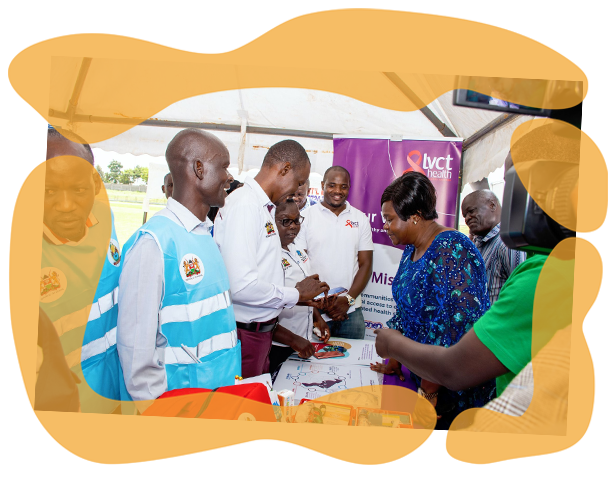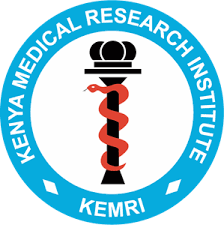Working in Partnership
“Pamoja twaweza…unless we work together, we will not manage this; together we can.”
This study is led by Kenyan partners, with a strong emphasis on local ownership and contextual relevance.
LVCT Health piloted the approach and is the lead player in strengthening community health system and scaling up efforts. Homa Bay Ministry of Health serves as co-investigator, while KEMRI conducts large-scale health systems trials in Western Kenya. LSTM supports research, and data digitisation experts from GiND develop and test systems for data linkage tailored to each county.
Together, we work closely with sub-county health teams and hundreds of community health promoters who identify pregnancies and refer women to antenatal care services.

LVCT Health
LVCT Health is an established Kenyan NGO renowned for implementing implementing health programs at scale in Kenya and beyond. As the project lead, its role includes overseeing the implementation of the intervention and overall project coordination. The intervention focuses on strengthening maternal and child health outcomes through a quality improvement approach at the community level.
Kenya Medical Research Institute (KEMRI)
KEMRI leads the trial. The KEMRI Centre for Global Health Research (CGHR) is a Kenyan parastatal based in Kisumu County with vast experience in conducting multiple large-scale clinical and health systems trials. It has on-going research in all three intervention counties.

Liverpool School of Tropical Medicine (LSTM)
LSTM is lead for the Realist Evaluation and the Health Economics. The team will also provide technical assistance and capacity strengthening support.
As a university and registered charity and work in trusting, strategic and long-standing global partnerships, LSTM partners with NGOs, Governments, Ministries of Health, the NHS, people with lived experience and their communities, industry and academic institutions to deliver effective and equitable interventions improving human health for and with the poorest communities.
Homa Bay County
Homa Bay County is the co-investigators in the study. Located in Western Kenya, with a population of over 1.3 million, the county faces significant health challenges, including high HIV/AIDS (10.6%), malaria (3.6%), and waterborne diseases, along with maternal and infant mortality rates that exceed national averages. To address these issues, the county has established 287 community health units and integrated over 2,500 community health promoters (CHPs), who play a vital role in delivering household health services, education, referrals, and data reporting, forming a key link between communities and health facilities.
The county has also expanded its electronic medical records system for HIV across all 165 health facilities and introduced digital tools like QED ScanForm to improve data management. Despite progress, challenges such as limited access to supplies, obstructed labor, reliance on traditional birth attendants, and an 8.8% mother-to-child HIV transmission rate persist. The government remains committed to strengthening primary healthcare, especially maternal and newborn services, to reduce preventable deaths and improve health outcomes.

